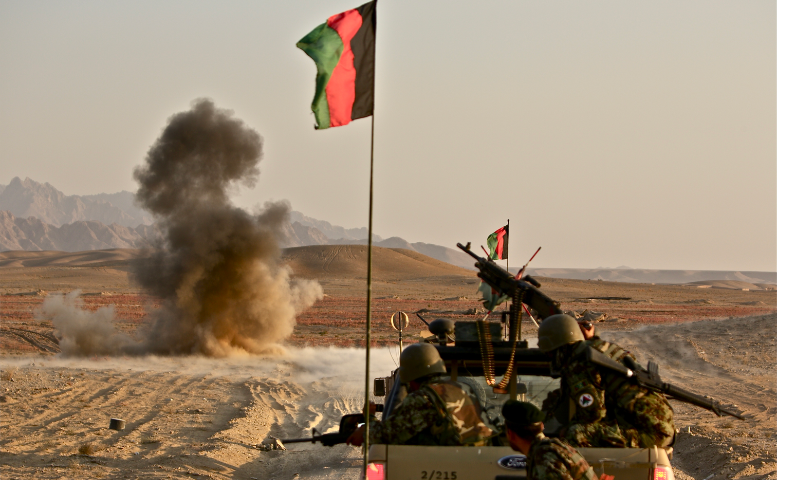Fazelminallah Qazizai and Chris Sands
New Lines, Aug. 1, 2022
“The Taliban now knew that they only had to wait and final U.S. troops would soon be gone. So did ISKP and the Islamic State central.”
It was Aug. 15, 2021, and the last U.S. troops were still sheltering at Kabul airport, waiting for the war to end, when the purge began. For 20 years the Taliban had been waging an insurgency in the name of jihad against foreign occupation. But with success now assured and their greatest enemy in retreat, they were already switching focus to another, more insidious, threat: their fellow Muslims in the Islamic State group. This time they would do their killing in the shadows. The first stage of their plan centered on a prison in Kabul’s heavily fortified diplomatic zone and was scheduled to unfold the same day the Afghan capital fell. Officials in the crumbling U.S.-backed government referred to the jail as Directorate 40.
Locals knew it only as another set of nondescript buildings hidden behind a high perimeter wall. Located close to the Ministry of Defense, the U.S. Embassy and NATO’s headquarters, near where the Taliban hung the butchered corpse of the former communist president Mohammad Najibullah when they first took power in 1996, it was a fitting location from which to start settling old scores. There was just one problem: The man at the top of their hit list knew they were coming for him.
As the leader of the Islamic State in South and Central Asia, Abu Omar Khorasani took a certain satisfaction from being the most feared and despised prisoner in Directorate 40. That morning it did not even cross his mind that the Taliban’s victory might bring an end to Afghanistan’s suffering. Nor did he think it was likely to bring him freedom. Instead, he regarded the Americans’ withdrawal as an opportunity to reignite his own armed struggle, either back on the battlefield himself or as a martyr whose death would inspire other Muslims to rise up in his name.
Khorasani had been in Directorate 40 for 10 months and, though he had not been tortured like other prisoners held before him in the custody of the intelligence service, confinement had taken its toll. His naturally wiry build had given way to a slight paunch and a solid, muscular physique; his hair was heavily receded at the front and hung down at the back in long, lank curls that spilled toward his shoulders. He looked a decade older than his 37 years, but his mind was still sharp and his sense of purpose undimmed. In truth, there was something of the philosophical sadist about Khorasani, and he was able to cope better than most with life in prison. He loved to read and write and frequently lost himself in the labyrinth of his own thoughts. Although he saw himself as a soldier, he would be better described as an ideologue who liked to intellectualize the horrific violence he unleashed. It was this characteristic that made him a dead man walking. … Source


